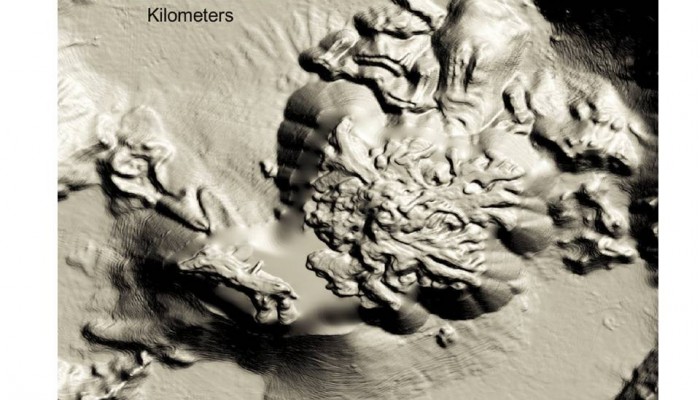Will this be your first time at an EGU General Assembly? With over 11,000 participants in a massive venue, the conference can be a confusing and, at times, overwhelming place. To help you find your way, we have compiled an introductory handbook filled with history, presentation pointers, travel tips and a few facts about Vienna and its surroundings. Download your copy of the EGU General Assembly g ...[Read More]
If you didn't find what you was looking for try searching again.
Geology for Global Development
Friday Photo (120) – Pacaya Lava Flows
Basaltic Lava Flows From the Eruption of Pacaya, Guatemala, in 2010 (Credit: Joel Gill, 2014) (This image, and others taken in Guatemala, is available for free use (subject to terms and conditions) from the EGU Image Repository)
Seismology
Job opportunity with EGU
The EGU is seeking to appoint a Communications Officer to work with the EGU Media and Communications Manager in maintaining and further developing media- and science-related communications between the EGU and its membership, the working media, and the public at large. The Communications Officer will also work under the direction of the EGU Executive Secretary on activities related to the promotion ...[Read More]
Geology Jenga
Some personal perspectives from a PhD student on the peer-review system
This is a follow-up to a previous post from September 2013 entitled ‘Soliciting peer reviews from PhD students’. In that piece, I summarised the responses I’d received from a number of editors of peer-reviewed journals in the field of Quaternary Science having asked them their feelings on soliciting peer reviews from PhD students. Some recent events, most significant being the acceptance of my fir ...[Read More]
GeoLog
Job opportunity at the EGU Executive Office: Communications Officer
The EGU is seeking to appoint a Communications Officer to work with the EGU Media and Communications Manager in maintaining and further developing media- and science-related communications between the EGU and its membership, the working media, and the public at large. The Communications Officer will also work under the direction of the EGU Executive Secretary on activities related to the promotion ...[Read More]
Soil System Sciences
Seminar series: Applied Earth Observation Techniques for Archaeology and the Environment
These seminars aim to explore and promote the use of Earth Observation (EO) techniques for different aspects of archaeological and paleoenvironmental research, including prospection/detection, classification, mapping and modeling. The variety of EO-related topics that will be presented in these seminars reflects some of the current trends in remote sensing applications in archaeological contexts. ...[Read More]
Seismology
Have you been drinking Guinness for St Patrick’s?
Yesterday was St Patrick’s day, celebrated world wide, probably with a pint of Guinness. Perhaps while sipping down a pint you may have wondered why do bubbles in Guinness sink? Here is one-of-a kind paper that discusses just this! They concluded that the flow in a glass of stout depends on the shape of the glass. If it narrows downwards (as the traditional stout glass, the pint, does), the ...[Read More]
VolcanicDegassing
Growth of the Kameni Islands Volcano, Santorini, Greece
A new paper, published in the journal GeoResJ, reveals the intricate details of the volcanic Kameni islands that lie in the flooded caldera of Santorini, Greece. The Kameni islands started growing shortly after the explosive eruption that formed much of the present day caldera. For the past 3500 years or so these islands have grown in pulses, with each new eruption adding more material to the edif ...[Read More]
GeoLog
Imaggeo on Mondays: Winter waterfalls reveal their secrets
Cyril Mayaud is kicking of this week’s Imaggeo on Mondays with an insight into what waterfalls in winter can tell us about their local hydrology… The picture below shows the lower Peričnik waterfall during winter season. This cascade system is composed of two successive waterfalls that stretch some 16 metres (upper fall) and 52 metres (lower fall) high and is one of the most beautiful natur ...[Read More]
Geology for Global Development
Field Research in Guatemala (5) – Photo Diary
After 2 months based in Guatemala undertaking hazards research, I am soon to return home. I will be continuing this series of posts over the next few months, reflecting on aspects of conducting research overseas and thinking through results. Guatemala is a stunningly beautiful country, with a dynamism reflected in everything from the landscapes to the markets. Everybody I have met has been incredi ...[Read More]

